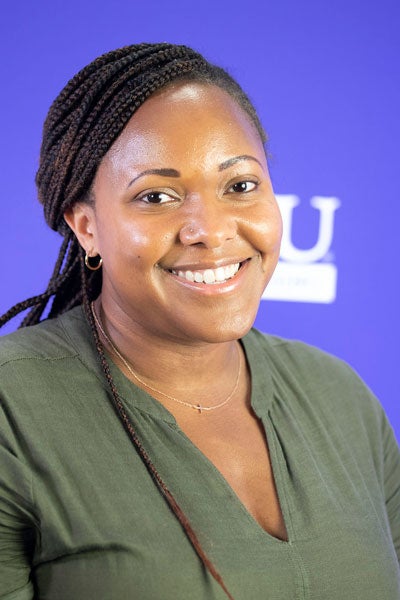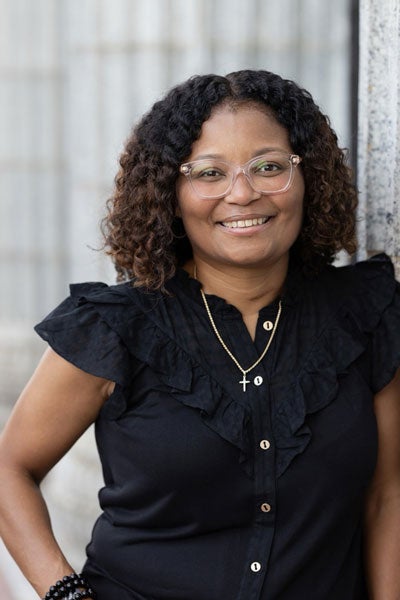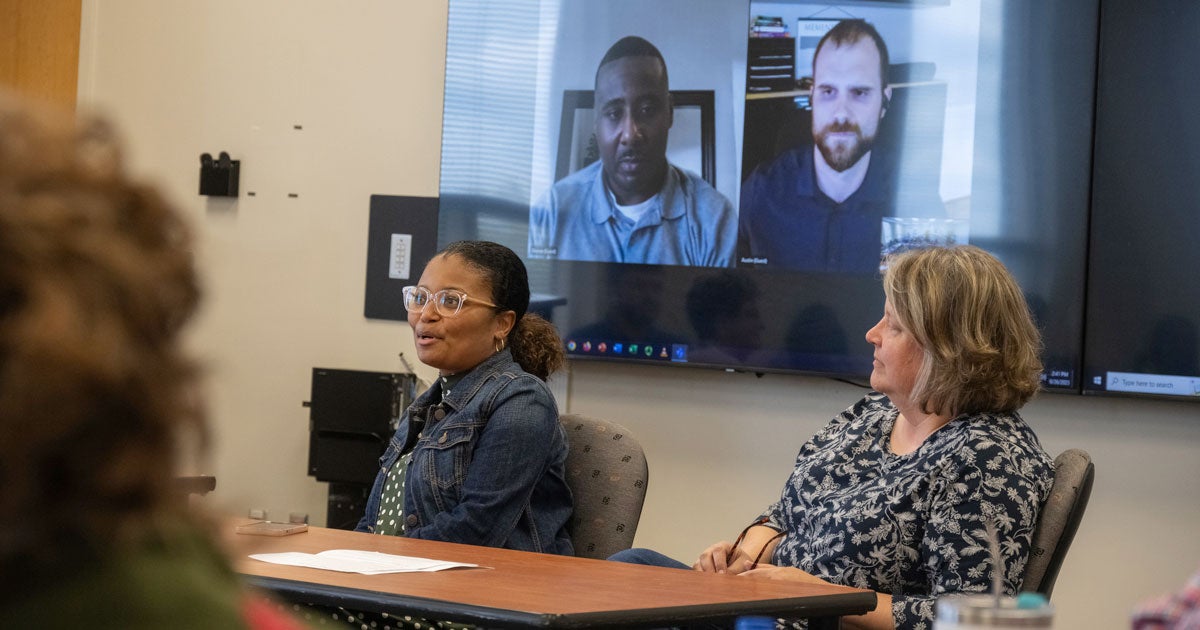Nursing faculty members selected for national Health Equity Influencers Program
Two East Carolina University nursing professors have been accepted to a national program aimed at addressing health care inequities and ensuring that nursing education programs are inclusive.
Drs. Brittany Baker and Adrian Lennon will be part of the inaugural six-month Health Equity Influencers Program (HEIP) at Mercy University in New York. Baker and Lennon are both clinical assistant professors in the ECU College of Nursing’s Department of Advanced Nursing Practice and Education.

Dr. Brittany Baker, a clinical assistant professor in the ECU College of Nursing’s Department of Advanced Nursing Practice and Education, was selected to participate in Mercy University’s Health Equity Influencers Program.
Baker, who also serves as assistant director of the college’s nursing program evaluation program, said she is proud to tackle the difficult work necessary to make ECU, and eastern North Carolina, more inclusive places to learn and live.
“I chose to join HEIP because as long as health equity persists, we must continue employing strategies to target the problem,” Baker said. “Without influential conversations with key stakeholders such as policymakers and system leaders, disparities in care and access will continue.”
Baker, a psychiatric mental health nurse practitioner faculty member, said the training is necessary because sometimes discussions of race and inequality, and the government and university policies that frame them, can be difficult.
“Programs like HEIP are necessary because they provide safe spaces for development and ‘practice,’” Baker said. “If we don’t invest the time to expand our abilities to confront inequities and the crises they yield, we will continue to experience a loss of human life. And the saddest reality is that this burden will continue to be disproportionately shouldered by people who are already disadvantaged.”
Lennon chose to join HEIP to expand her skills to decrease health care disparities and inequities, she said.
“As a dually certified family and psychiatric mental health nurse practitioner, I am very familiar with the inequities that exist in both health care and mental health care. Through my diverse clinical experiences, I have observed firsthand how disparities in access, quality of care and health outcomes impact various populations,” Lennon said.
“My dual certification has provided me with a unique perspective on the interconnected nature of physical and mental health, reinforcing the critical need for equitable, comprehensive care for all patients. By addressing inequities as nurse educators, we can promptly and proactively identify and develop solutions, and prepare future nurses for a workforce that includes caring for diverse populations.”

Dr. Adrian Lennon, a clinical assistant professor in the ECU College of Nursing’s Department of Advanced Nursing Practice and Education, was selected to participate in Mercy University’s Health Equity Influencers Program.
Lennon believes the course will give her the tools to systematically improve how nursing students are taught, which will in turn improve health outcomes in rural North Carolina.
North Carolina’s health inequities are stark. In 2022, the state was ranked as the 30th healthiest state in the nation, Black babies were 2.4 times as likely to die than white and Hispanic babies and Black North Carolinians were 2.3 times as likely to die from complications of diabetes.
“North Carolina is a state with many rural areas populated by the poor, minorities and the most vulnerable citizens of our communities with high rates of untreated mental illness and substance use disorders,” Lennon said.
There is room for hope, however. Research by the Commonwealth Fund suggests that minority patients receive more and better care when their doctors, nurses and allied health caregivers reflect their personal characteristics, and clients are more likely to receive preventative care like vaccinations and routine testing.
Being a voice for members of marginalized communities is a passion for Lennon and she takes the responsibility very seriously.
“I am excited that this program and others like it exist and are quickly emerging in response to the increasing negative consequences of inequities,” Lennon said. “Nursing has always been one of the leading innovators of patient-centered care. Initiatives such as the HEIP program are a living testament that nursing is up for the challenge and will continue to be at the forefront of innovative ways to meet the needs of our communities.”
Baker said the training is crucial for identifying ways to be part of the change desperately needed in health care in North Carolina because she is one of the health care leaders who reflects the communities most in need. But Baker knows that she can’t go it alone.
“HEIP is an excellent opportunity to receive mentorship from field experts and expand my network of professional collaborators,” Baker said.

Dr. Adrian Lennon speaks with her psychiatric mental health nurse practitioner students during a class at the College of Nursing.
MORE BLOGS